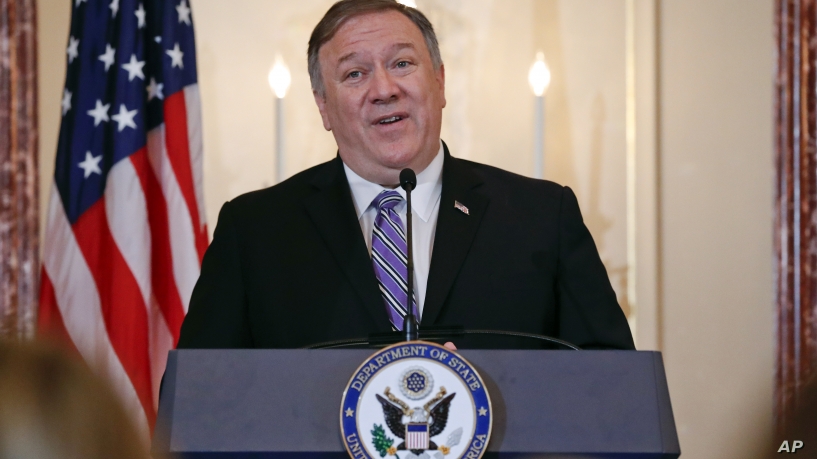By: Melissa Berouty
Journal of Global Rights and Organizations, Associate Articles Editor
ASHGABAT, Turkmenistan — According to Freedom House’s index of basic freedoms, Turkmenistan is rated below North Korea and only above Syria. Under Turkmen law, the government has the authority to regulate behavior in an attempt to “construct the model Turkmen citizen.” Turkmen authorities exercise its control by brutally punishing any form of religious or political expression that does not align with the Turkmen government. Additionally, the Turkmen government limits the nature of print and electronic media available to its citizens.
The Turkmen government has a long history of enforced disappearances, where individuals’ whereabouts or fates serving long sentences in Turkmenistan are unknown. For more than ten years, the Turkmen government has prohibited loved ones, lawyers, and the outside world access to the imprisoned. Prove They Are Alive, a campaign committed to ending enforced disappearances in Turkmenistan, has reported at least 121 cases of enforced disappearances. Of these 121 cases, many are suspected to be detained in the Ovadanepe prison, which has a reputation for extreme conditions.
On October 24, 2019, it was reported that Kasymberdy Garayev was feared to be missing after allegedly revealing his sexual orientation, under a pseudonym, on Radio Free Europe/Radio Liberty. In Turkmenistan, homosexual conduct is a criminal act that can result in up to a two-year prison sentence. Today, approximately sixty-eight countries have laws that criminalize homosexual conduct between consenting adults. According to Human Rights Watch, sentencing in these sixty-eight countries “range from fines to life imprisonment and even the death penalty.” Rachel Denber, the deputy Europe and Central Asia director at Human Rights Watch, expressed her extreme concern for Garayev stating that “given Turkmenistan’s appalling human rights record, including enforced disappearances, we have every reason to fear for his safety and well-being.”
Kasymberdy Garayev is a 24-year-old cardiologist, who was employed at an elite clinic in Turkmenistan. On October 21, 2019, Radio Free Europe/Radio Liberty released a narrative, where Garayev allegedly reflected on his life in Turkmenistan stating that “since childhood, I knew that I was gay and it was hard for me to accept.” In 2018, Garayev was allegedly detained by Turkmen authorities upon a scheduled meeting with an online male love interest, which turned out to be a police officer. Here, Garayev allegedly stated that on the way to the police station, officers beat him, used a stun gun, and demanded that he make a statement on camera confirming his sexual orientation.
On October 24, 2019, Turkmen authorities allegedly requested Garayev’s presence for a background check. From October 24, 2019 to November 6, 2019, Garayev’s whereabouts were unknown. Radio Free Europe/Radio Liberty was also unable to locate Garayev’s family. According to Human Rights Watch, when an individual summoned by Turkmen authorities goes missing, “there is a real risk they could be the victim of an enforced disappearance.”
On October 31, 2019, Radio Free Europe/Radio Liberty released a video recording of Garayev2 speaking, where he disclosed his real name, expressed his fear of going missing, and begged for his family’s forgiveness.
During the time Garayev was feared to be missing, Gurbanguly Berdymukhamedov, the president of Turkmenistan, visited Rome. During Berdymukhamedov’s visit, several Italian LGBTQ+ activist groups urged Rome to speak out on Garayev’s disappearance. On November 6th, Italian Senator Monica Cirinna released a statement demanding the government press Berdymukhamedov on the details of Garayev’s disappearance. Later that day, Garayev returned home.
Since then, Garayev denies any communication with Free Europe/Radio Liberty. Garayev claims that the video farewell was recorded for a different purpose and sent mistakenly to Radio Free Europe/Radio Liberty. Additionally, after the release of Radio Free Europe/Radio Free Liberty’s narrative, Garayev is no longer employed by the prestigious clinic in Turkmenistan where he once worked. Since Garayev’s alleged return home, several LGBTQ+ activist groups have started campaigns seeking to protect Garayev.
For further information, please see:
Human Rights Watch – Turkmenistan: Gay Man Missing After Coming Out Online – 1 Nov. 2019
Human Rights Watch – Turkmenistan Events of 2018
Human Rights Watch –#OUTLAWED “THE LOVE THAT DARE NOT SPEAK ITS NAME”

